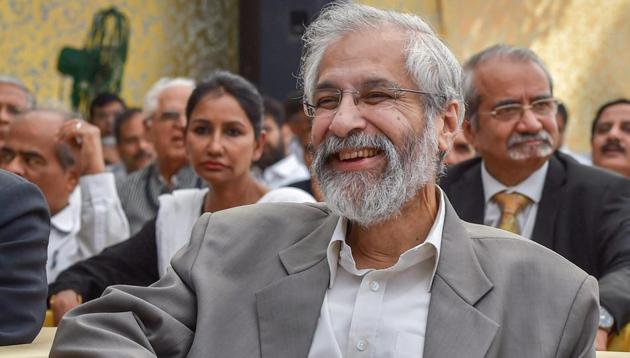Bidding farewell to Justice Lokur, a fair-minded judge of the Supreme Court
In six years in the Supreme Court, he has simultaneously discharged several administrative responsibilities to improve access to justice throughout the country.
Justice Madan Lokur retired from the Supreme Court (SC) this Friday after serving in the court for six years. Those who follow the SC closely may know him as a serious and fair-minded judge who is often in the headlines for pulling up the government for inaction on socio-economic issues. Others may know him as one of the four judges from the historic press conference who exposed the problems in the administration of the SC. However, there is much more to be said about his contribution, both as a judge and administrator.

Justice Lokur, as the head of the SC’s Social Justice Bench, evolved an approach that addresses the main criticism levelled against judges — that they often indulge in policy making despite lacking the requisite expertise. Justice Lokur, while dealing with cases of inaction by the government, would obligate the government to deliberate and come up with a realistic action plan instead of deciding policies himself. He would then monitor and ensure the implementation of these plans through follow-up hearings and by resorting to sanctions, including summoning top-level government officials as a last resort. Through this approach, Justice Lokur has ensured meaningful relief in petitions relating to the right to food in drought hit states, welfare of children, senior citizens, Vrindavan widows, construction workers, prisoners, and the right to environment, to name a few.
Those who criticise Justice Lokur’s decisions as “activist” often overlook the process through which these decisions are arrived at. His approach creates the possibility of a continuing and meaningful dialogue between the judiciary and the government. This dialogue allows the judiciary to better understand the administrative constraints on the government. In fact, many a time during hearings, one would find bureaucrats directly explaining to the Bench the problems being faced while policy framing and implementation, and the Bench was able to pass orders to help overcome these issues.
Justice Lokur has also stressed the need for better administration for better justice. In six years in the SC, he has simultaneously discharged several administrative responsibilities to improve access to justice throughout the country.
As chairman of the e-committee since 2012, he set up the National Data Judicial Grid, which provides statistics of the cases pending in all high courts and most district courts. This data was an indispensable first step for the introduction of case management techniques across courts and for nationwide reforms. To empower the individual litigant, he introduced services like the e-courts app, e-pay and e-process that allow litigants to access information and services related to their case through their mobile phones. While introducing e-filing in district courts, Justice Lokur has been known to be hands on. In fact, while travelling for other commitments he would often drop by at the nearest district court to monitor progress and obtain feedback.
Justice Lokur also served as the executive chairman of the SC Legal Services Committee, the committee responsible for providing free legal aid for filing cases in the SC. He was able to eliminate the committee’s backlog of cases, many of which had been pending since 2005, through concerted reform, from filling up administrative vacancies, to identifying infructuous cases, to reassigning cases to motivated lawyers and volunteers who personally contacted litigants to finally file their cases.
As a member of the SC’s Juvenile Justice Committee as well as the SC’s Mediation & Conciliation Project Committee,Justice Lokur directly oversaw the training of members of juvenile justice committees constituted under every High Court and mediators respectively. In a first, he ensured that mediators also received training from reputable international institutions.
In spite of all these responsibilities, Justice Lokur has always taken out the time to read the 70 odd cases listed before him every day, and has efficiently managed his courtroom, simultaneously thinking about the big picture and every individual litigant.
As Justice Lokur retires as the second seniormost judge in the SC, one cannot help but wonder about the impact he would have had if he had become the Chief Justice of India. Nevertheless, Justice Lokur’s policies and approach, if institutionalised, can continue to benefit the Indian legal system.
Jahnavi Sindhu & Vishrutyi Sahni served as law clerks to Justice Lokur in 2015-17 and 2017-18 respectively
The views expressed are personal






